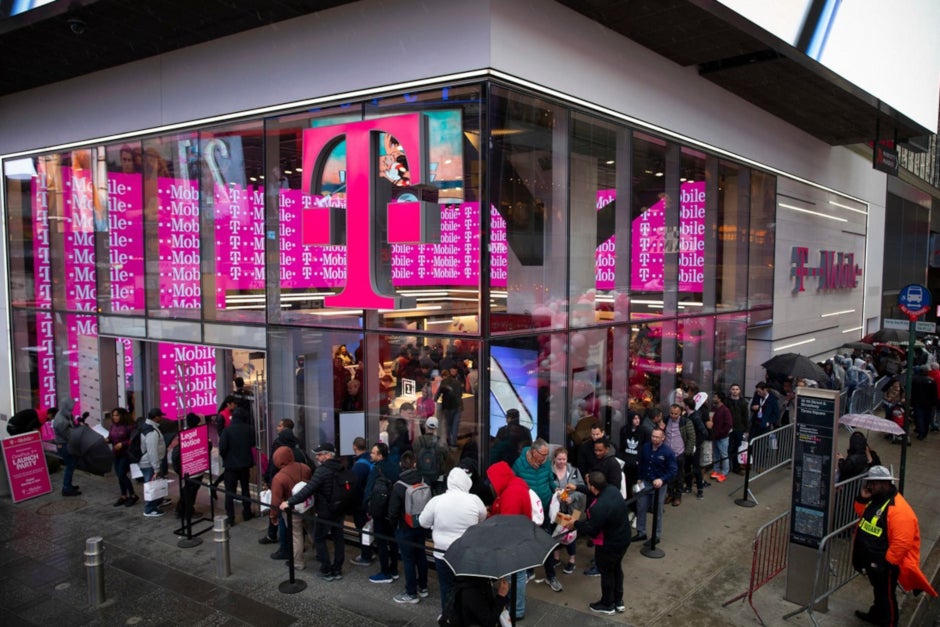OMG! T-Mobile-Sprint merger faces yet another hurdle it must clear

On Wednesday, closing arguments will take place in the trial that we had thought was the last hurdle facing the T-Mobile-Sprint merger. Federal Judge Vincent Marrero is expected to make a ruling next month and we all thought that this would be the end of the long process (after the losing side appeals, of course). But the merger, which was announced on April 29th, 2018, might have yet one more hurdle it must clear.
According to Fierce Wireless, Judge Timothy Kelly has extended his Tunney Act review into the middle of February. The review is focused on the deal made by the Justice Department with T-Mobile-Sprint that allowed the regulatory agency to approve the merger. The DOJ was strongly opposed to the transaction, worried that the 25% drop in major carriers from four to three would change the competitive balance in the industry and lead the remaining three players to raise prices. But after a deal was made that would allow Dish Network to set up shop as Sprint's eventual replacement, the DOJ agreed to approve the merger.
Judge reviewing DOJ's settlement with T-Mobile-Sprint creates another hurdle for the merger to jump through
We told you over the weekend that Judge Kelly is accepting friend-of-the-court briefs from third-parties. Limited to 20 pages of comments, the briefs must be filed by January 24th with the parties responding to them by February 7th.
The Tunney Act of 1974 forces a court to decide independently that a remedy agreed to by the DOJ is in the public interest. There have been complaints about the settlement reached by the Justice Department which calls for Dish Network to purchase Sprint's pre-paid businesses (including 7,500 retail locations and 9.3 million customers), 14MHz of 800MHz spectrum, access to some cell sites and more for $5 billion. In addition, Dish will sign a seven-year MVNO agreement with T-Mobile allowing it to sell wireless service under its name while it starts building a standalone 5G network. All of this is expected to take place as soon as the T-Moble-Sprint merger becomes official. Dish will need a deep-pocketed partner to help it build its network and there is speculation that Google, Apple or Amazon might agree to work with Dish.

Will T-Mobile finally be allowed to merge with Sprint? The drama continues
The extension of the Tunney Act review has analysts surprised. LightShed Partners analysts Walter Piecyk and Joe Galone told clients in a letter, "We had initially expected this routine review to end in mid-November. Now it might not conclude until after Judge Victor Marrero’s decision in the State AG case, thereby delaying T-Mobile’s ability to close the deal. This generates additional uncertainty for investors and could further widen the ratio between T-Mobile and Sprint’s stock."
Speaking about this ratio, the current spread is $3.25. In other words, if the deal were to close today Sprint stockholders would receive $8.14 worth of T-Mobile stock for every share of Sprint they own. But Sprint is currently trading at $4.89 indicating that there is a high degree of skepticism on the part of investors that the deal will close in its current form. And even if the deal does get approved, without a currently signed merger agreement between the two companies there is a chance that T-Mobile will ask for the actual price of the merger to be renegotiated lower, especially since T-Mobile continues to be the fastest-growing major carrier in the U.S.
However, Sprint does have something that T-Mobile dearly wants, its hoard of 2.5GHz mid-band spectrum. T-Mobile needs these airwaves to help cover rural Americans with 5G. As T-Mobile CEO John Legere testified last month in court, with the merger T-Mobile will "triple the total 5G capacity of standalone T-Mobile and Sprint combined." If the deal doesn't get done, Legere says that in some markets, T-Mobile will "exhaust capacity in the next two to four years."
One analyst expects Kelly to rule mostly in favor of the DOJ's settlement with T-Mobile-Sprint. New Street's Blair Levin wrote, "We expect the judge in the Tunney Act proceeding, if he goes first, to largely uphold the DOJ consent decree. As the Tunney Act standard and precedent is much lower, we don’t see it as having much of an impact on the trial judge’s decision, which will also almost certainly be largely written by the time any Tunney Act decision is published."










Things that are NOT allowed: